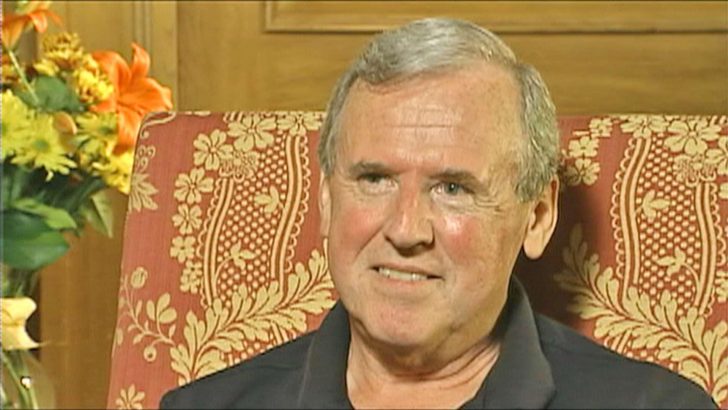How the Irish Saved Civilisation and The Gifts of the Jews (The Hinges of History Series)
by Thomas Cahill (Sceptre, £9.99 paperback each)
Thomas Cahill’s strength is not his historical accuracy, nor the depth and perceptiveness of his theories. Perhaps this is curious, given he is an American scholar of history and philosophy. Born in New York to Irish-American parents, he received a BA in classical literature and philosophy, as well as a pontifical degree for philosophy, from the prestigious Fordham University.
He is best known for his ‘Hinges of History’ saga of books – six in all – of which I am reviewing the first two. How the Irish Saved Civilisation is the first, provocatively titled account of the rise of Irish Christianity. Its thesis is that without the efforts of Irish monks, none of the works of antiquity would have made their way to us.
Supported
While this claim is never adequately supported, the book is an engaging read all the same. Dr Cahill’s writing is polemical, but by nature or instinct, it appears he is a writer. What is most striking about this book is its identification of St Patrick’s unique achievement – converting the first peoples outside the Roman Empire.
With punchy prose and provocative statements, it is likely this book will get under your skin. His account of Celtic Ireland is as vivid as it is speculative. His St Patrick is a charismatic figure, convincing the proud, warrior-clans to give up their ancient traditions and unite with the Church. He incorporated the latent religious spirit and allowed it to flourish. As an engaging cultural history, it is good and worth the while.
The second book in the series,The Gifts of the Jews, is a more complete, if still frustrating account of the unique achievements of the Jews. For this book, Dr Cahill spent two years as a visiting scholar at the Jewish Theological Seminary of America. Partly as a result of this, he is on much firmer ground.
Engaging
It is, mostly, a faithful and engaging account of the great influence the development of Jewish culture, philosophy and religion has had on the west. The gifts of the Jews are manifold, ranging from the concept of history itself, to a profound monotheism at odds with the polytheism of the majority of religions. The fact that Dr Cahill is even able to write such a book is a gift of the Jews.
The book begins in pre-history, speculating on the life and rituals of the people of Sumaria, the plain of Ur where Abraham came from. Following the path of the Bible chronologically, it finishes shortly before the birth of Christ. Largely, it is about the awakening of individual human consciousness and how that is interrelated with a perception of God which is significantly different from the surrounding religions.
Once again, Dr Cahill’s great strength is his vivid prose and eye for character, approaching it as a narrative populated with very human cultures and characters. He follows this Semitic tribe as it moves from family to people to nation and then, from this purely communal conception to the idea of personal, human relations. Abraham becomes a subtle schemer, who uses his whiles to forge a good life for himself and his wife Sara. David a pugnacious and cheeky bard and politician, a composer of beautiful poetry and also a brave and worthy king.
As with How the Irish Saved Civilisation, the orthodoxy and scope of Dr Cahill’s claims require interrogating. But as introductions to topics which, to some, may seem boring, they are accessible, enjoyable – and make you want to know more.


 Ruadhán Jones
Ruadhán Jones Thomas Cahill.
Thomas Cahill. 